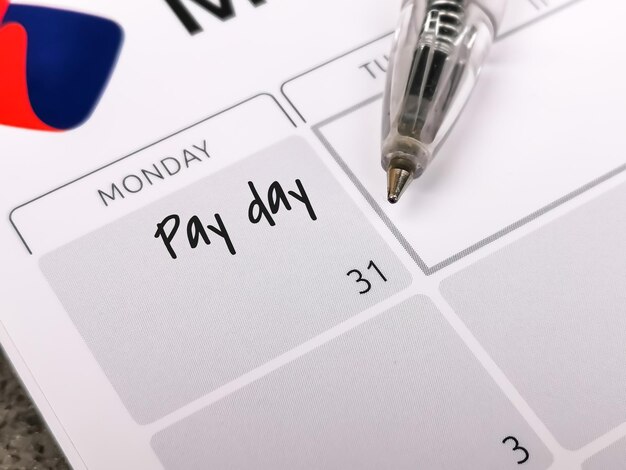Finance Tips: Boost Your Credit Score by 50 Points in 6 Months

Finance Tips: Boost Your Credit Score by 50 Points in 6 Months often involves a combination of strategies, including paying down debt, disputing errors on your credit report, and becoming an authorized user on a responsible account.
Improving your credit score is a goal for many, and with the right strategies, it’s possible to see significant progress in a relatively short time. If you’re looking to **finance tips: boost your credit score by 50 points in 6 months**, this guide provides actionable steps you can take to achieve that goal.
Understanding Your Credit Score
Before diving into strategies, it’s essential to understand what influences your credit score. Several factors contribute, including payment history, amounts owed, length of credit history, new credit, and credit mix. Knowing how these factors are weighted can help you prioritize your efforts and focus on the areas that will have the most impact.
Key Factors Affecting Credit Score
Your credit score is a numerical representation of your creditworthiness, and understanding the key factors that influence it is crucial for improvement. These factors are considered by credit bureaus when calculating your score.
- Payment History: This is the most important factor, reflecting whether you’ve made payments on time.
- Amounts Owed: Also known as credit utilization, this reflects the amount of credit you’re using compared to your total available credit.
- Length of Credit History: A longer credit history generally leads to a better score, showing lenders your ability to manage credit over time.
Payment history is paramount. Consistent on-time payments demonstrate reliability to lenders. Simultaneously managing the amounts owed, also known as credit utilization, is vital, as using a high percentage of your available credit can negatively impact your score.

Credit Score Ranges
Understanding the different credit score ranges can give you a better sense of where you stand and what it takes to reach your target score. Credit scores typically range from 300 to 850.
- Poor: 300-579
- Fair: 580-669
- Good: 670-739
Understanding the ranges is important for setting realistic goals and measuring your progress. Even a small improvement can move you into a higher tier, unlocking better interest rates and financial opportunities.
Understanding your credit score and the factors that influence it is the first step towards improving your financial health. By focusing on key areas like payment history and credit utilization, you can lay a solid foundation for future credit success.
Check Your Credit Report for Errors
Incorrect information on your credit report can negatively impact your score. Regularly reviewing your credit reports from Equifax, Experian, and TransUnion allows you to identify and dispute any inaccuracies, such as mistaken accounts, incorrect payment statuses, or identity theft. Correcting these errors can promptly improve your credit score.
Requesting Your Credit Reports
You are entitled to a free credit report from each of the three major credit bureaus annually. This allows you to monitor your credit history and identify any discrepancies that may be affecting your score.
To obtain your free credit reports, visit www.annualcreditreport.com. This is the official website where you can request reports from all three bureaus.
Disputing Errors
If you find any errors on your credit report, dispute them immediately. The credit bureaus are required to investigate any claims and correct any inaccuracies.
- Gather Documentation: Collect any documents that support your claim, such as bank statements or payment confirmations.
- Submit a Dispute: File a dispute online, by mail, or by phone, providing detailed information about the error.
- Follow Up: Keep track of your dispute and follow up with the credit bureau if you don’t receive a response within 30 days.
Regularly checking your credit reports and disputing errors is a proactive way to ensure your credit information is accurate. Correcting these errors is essential for finance tips: boost your credit score by 50 points in 6 months.

Become an Authorized User
Becoming an authorized user on a credit card account with a long history of responsible use can boost your credit score. This allows you to benefit from the primary cardholder’s positive credit habits, as their payment history will reflect on your credit report.
Finding the Right Account
Not all accounts are created equal. To maximize the benefits, look for an account with a strong credit history and responsible management.
The ideal account should have several years of history, consistent on-time payments, and a low credit utilization ratio. These positive attributes will significantly enhance your credit profile.
Potential Benefits
Becoming an authorized user can have several advantages, particularly if you are new to credit or have a limited credit history.
- Boosted Credit Score: Positive payment history and credit utilization will reflect on your credit report.
- Established Credit History: It can help you establish a credit history, which is essential for future borrowing.
- Increased Credit Limit: Having access to a higher credit limit can improve your credit utilization ratio.
However, it’s important to note that becoming an authorized user also carries some risks. If the primary cardholder mismanages the account, it could negatively affect your credit score. Therefore, choose the account carefully and ensure the primary cardholder has a history of responsible credit management.
Becoming an authorized user can be a strategic move to improve your credit score, but it requires careful consideration. Choose the account wisely and ensure you understand the potential benefits and risks involved.
Pay Down High-Interest Debt
High-interest debt, such as credit card balances, can significantly impact your credit score. Focus on paying down these balances to reduce your credit utilization ratio and save money on interest payments. Strategies like the debt snowball or debt avalanche methods can help you prioritize and accelerate debt repayment.
Debt Snowball vs. Debt Avalanche
Two common debt repayment methods are the debt snowball and debt avalanche. Each offers a unique approach to tackling debt.
Debt Snowball Method
- Focus: Paying off the smallest balances first, regardless of interest rates.
- Motivation: Provides quick wins, boosting morale and keeping you motivated.
Debt Avalanche Method
- Focus: Paying off the debts with the highest interest rates first, minimizing overall interest paid.
- Financial Efficiency: Saves you the most money in the long run.
The debt snowball method is psychologically rewarding because it provides quick wins, which can be very motivating. On the other hand, the debt avalanche method is mathematically more efficient, as it focuses on reducing the most costly debts first.
Avoid Opening Too Many New Accounts
Each time you apply for a new credit account, a hard inquiry is made on your credit report, which can slightly lower your score. Opening multiple accounts in a short period can signal financial instability to lenders, potentially hurting your creditworthiness. Space out your credit applications and only apply for accounts you genuinely need.
Impact of Hard Inquiries
Hard inquiries occur when a lender checks your credit report to make a lending decision. These inquiries can temporarily lower your credit score.
- Temporary Impact: The impact of a hard inquiry is usually minimal and fades over time.
- Signal to Lenders: Multiple hard inquiries in a short period can suggest you are desperately seeking credit.
While a single hard inquiry typically has a minor impact, multiple inquiries can be problematic. Lenders might view it as a sign that you are overextending yourself financially.
Monitor Your Spending
Keeping track of your spending habits is crucial for improving your credit score. Understanding where your money is going helps you avoid overspending, maintain low credit utilization, and make timely payments. Utilize budgeting apps, spreadsheets, or manual tracking to stay on top of your finances and ensure you’re not accumulating unnecessary debt.
Benefits of Budgeting
Budgeting is a cornerstone of financial health, providing numerous benefits that extend beyond just improving your credit score.
- Financial Awareness: Helps you understand where your money is going.
- Debt Reduction: Enables you to identify areas where you can cut back and pay down debt.
- Savings Goals: Allows you to allocate funds for savings, investments, and future financial goals.
By monitoring your spending, you gain a clearer picture of your income and expenses, which is essential for making informed financial decisions. This awareness can help you avoid overspending and stay on track with your financial goals.
Managing your spending is a crucial aspect of improving your credit score. By understanding where your money goes, you can avoid debt and maintain healthy financial habits.
Automate Payments
Setting up automatic payments for your credit cards and other bills ensures you never miss a due date, which is essential for maintaining a positive payment history. Most banks and credit card companies offer automatic payment options, allowing you to schedule payments from your checking account. This simple step can significantly improve your credit score over time.
| Key Point | Brief Description |
|---|---|
| ✅ Check Credit Report | Identify and dispute errors to improve score. |
| 💳 Authorized User | Benefit from the primary cardholder’s positive credit habits. |
| 💰 Pay Down Debt | Reduce high-interest debt to lower credit utilization. |
| 🗓️ Automate Payments | Ensure timely payments to maintain positive payment history. |
Frequently Asked Questions
▼
The timeline varies depending on the actions you take and your starting point. Some changes, like disputing errors, might show results within a month, while others, like building credit history, can take several months.
▼
A credit utilization ratio below 30% is generally considered good. Aim to keep your balances low compared to your credit limits to demonstrate responsible credit management. Ideally even lower than 10%.
▼
Closing unused credit cards can reduce your overall available credit, potentially increasing your credit utilization ratio. Generally, it’s better to keep them open and use them occasionally.
▼
You should check your credit report at least once a year. Monitoring it regularly helps you identify errors and detect potential fraud early on to protect your credit score.
▼
Yes, paying off debt in collections can improve your credit score. It’s recommended that you negotiate a “pay for delete” agreement where the collection agency removes the debt from your report.
Conclusion
Improving your credit score requires a combination of strategic actions and consistent effort. By understanding the factors that influence your score, taking steps to correct errors, managing your debt, and building positive credit habits, you can successfully finance tips: boost your credit score by 50 points in 6 months. Stay disciplined, monitor your progress, and celebrate each milestone along the way.





